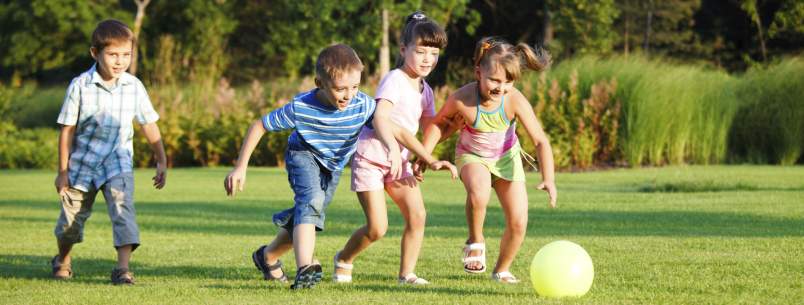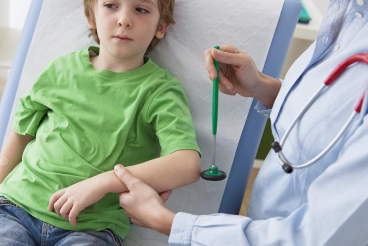Neurological assessment for Kids
We know the idea of neurological problems can be scary for you and your child. Treating each child as our own, our Nemours pediatric neurology specialists provide expert care that’s as compassionate as it is technologically advanced. Whether your child has an injury or a neurological condition, we can help your child recover, improve and get back to just being a kid.
Neurological issues can affect your child’s cognitive functioning (ability to think, reason and make behavior choices), physical functioning (the way the body works), or both. Our Nemours pediatric neurologists take a team approach that brings in a variety of specialists who work together to give your child the best possible care.

We know the idea of neurological problems can be scary for you and your child. Treating each child as our own, our Nemours pediatric neurology specialists provide expert care that’s as compassionate as it is technologically advanced. Whether your child has an injury or a neurological condition, we can help your child recover, improve and get back to just being a kid.
Neurological issues can affect your child’s cognitive functioning (ability to think, reason and make behavior choices), physical functioning (the way the body works), or both. Our Nemours pediatric neurologists take a team approach that brings in a variety of specialists who work together to give your child the best possible care.
More About Pediatric Neurology

The pediatric neurologists at Nemours have the expertise to evaluate, diagnose and treat children with a wide range of neurological injuries and conditions, including:
• epilepsy and seizures
• headache and migraines
• cerebral palsy, muscular dystrophy and other neuromuscular
• disorders
• developmental delay
• sleep disorders
• epilepsy and seizures
• headache and migraines
• cerebral palsy, muscular dystrophy and other neuromuscular
• disorders
• developmental delay
• sleep disorders
______________
PDTR works with children from newborn age. Please note, that surrogate testing is needed for the kids below 7 years old.
PDTR works with the following issues:
- Pain symptoms
- Dyslexia or Learning Difficulties, especially reading, spelling and comprehension
- Poor written expression
- Poor sequencing skills
- Poor sense of time
- Poor visual function/processing skills
- Slow in processing information
- Attention and concentration problems
- Inability to sit still/fidgeting
- Poor organisational skills
- Easily distracted and/or impulsive
- Hyperactivity
- Hypersensitivity to sound, light, or touch
- Dyspraxia/Speech problems and Language delays
- Motor, co-ordination and balance problems
- Poor posture and/or awkward gait
- Poor handwriting
- Poor spatial awareness
- Poor hand-eye co-ordination
- Poor gross and fine motor skills
- Difficulty learning how to swim/ride a bike
- Clumsiness/accident prone
- Slow at copying tasks
- Confusion between right and left
- Reversals of letters/numbers and midline problems
- History of difficult birth
- History of brain injury or damage
- Quick temper/easily frustrated/short fuse
- Bedwetting past 5 years of age
- Motion sickness
- Can't cope with change/must have things a certain (their) way
- School Phobia
- Poor motivation and/or self esteem
- Depression, anxiety or stress
- Behavioral, self esteem and motivational problems associated with the above
- Vestibular problems: motion sickness, poor balance and coordination.
- Physical timidity.
- Eye movement and visual perceptual problems.
- Stimulus bound effect – cannot ignore irrelevant visual material within a given visual field; the eyes tend to be drawn to the perimeter of a shape to the detriment of perception if there are internal features to the shape.
- Light sensitivity, difficulty with black print on white paper, tires easily under fluorescent lighting.
- Possible auditory confusion resulting from hypersensitivity to specific sounds (the child may have poor auditory discrimination skills and have difficulty shutting out background noise).
- Allergies and lowered immunity; i.e. asthma, eczema, or a history of frequent ear, nose, and throat infections.
- Adverse reaction to drugs.
- Poor stamina.
- Dislike of change or surprise; poor adaptability
- Poor posture
- Tendency to slump when sitting, particularly at a desk or table
- Simian (ape-like) walk
- Poor eye-hand coordination, messy eater, clumsy child syndrome
- Difficulties with readjustment of binocular vision (child cannot change focus easily from blackboard to desk)
- Slowness at copying tasks
- Poor swimming skills
- Poor posture and/or stooping
- Hypotonus (weak muscle tone)
- Vestibular-related problems (i.e. poor sense of balance, carsickness)
- Dislike of sporting activities, physical education classes, running, etc.
- Eye movement, visual perceptual, and spatial problems
- Poor sequencing skills
- Poor sense of time
- Poor organization skills
- Food intolerance